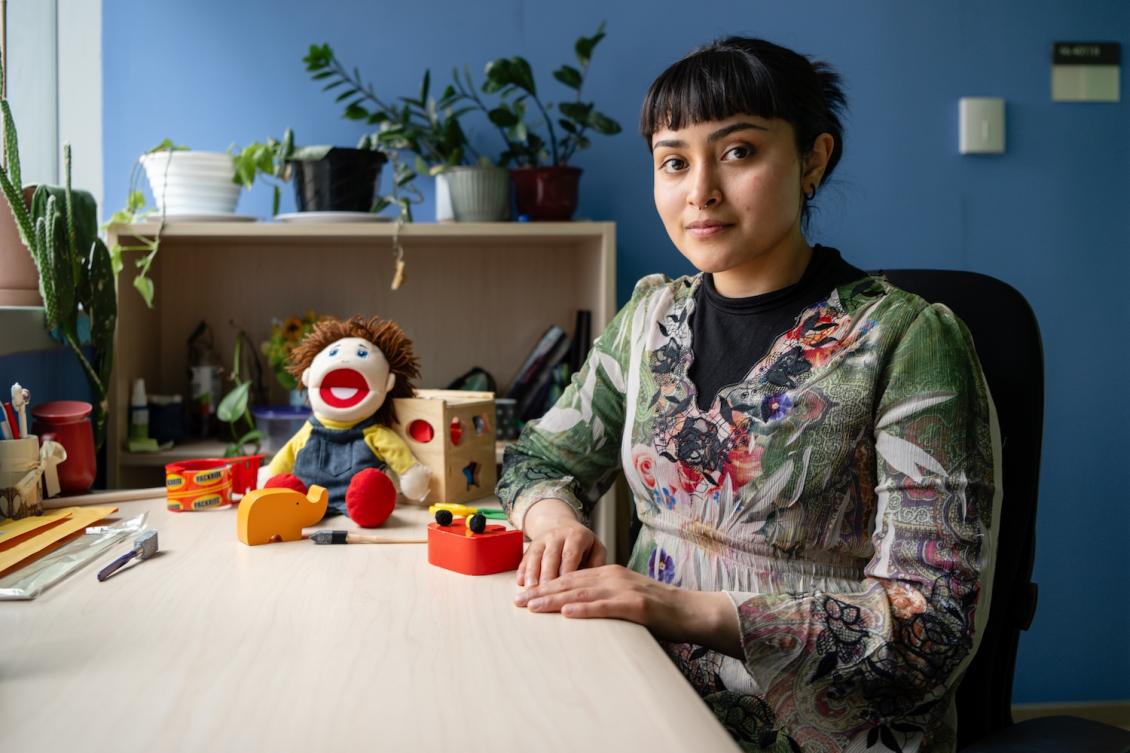Finding the right path to a future in cognitive science

As Karla Perez neared the finish line for her bachelor's degree, she knew she wanted to dive deeper into brain sciences, but she wasn't quite sure how to take the plunge.
"I knew that studying the mind is a huge enterprise and that it's something I could see myself doing, but I hadn't had the opportunity to study the scientific fields that comprise our current knowledge of the mind," she says. "I was also considering graduate school in philosophy, but I decided on the research scholars program because I realized it would allow me to explore the different subfields of the brain sciences, from neuroscience to psychology, to cognitive science."
The Research Scholars Program in the Department of Brain and Cognitive Sciences is a prestigious two-year, non-degree, fully funded post-baccalaureate program for outstanding recent college graduates who plan to pursue a research career in neuroscience, cognitive science, or neuroengineering. The program is designed to provide additional research and academic training to individuals from a variety of backgrounds, including first-generation college students, students with disabilities, and veterans.
For the last two years, Perez has worked full-time in Professor Laura Schulz's Early Childhood Cognition Lab, and is now getting ready to embark on her next step -- she will begin her studies in the PhD program for developmental psychology at Stanford University in the fall.
Perez took some time to discuss her experience in the Research Scholars Program.
What was the journey that brought you to the BCS Research Scholars program?
I attended Lake Forest College, a small liberal arts college, which did not have any grad students or fancy lab spaces. I majored in philosophy and data science, and was a member of an experimental philosophy lab all throughout. After a summer internship through the MindCORE Program at the University of Pennsylvania, where I got a better understanding of the scientific enterprise, I realized that empirically studying the mind was something I could see myself doing, but that I knew very little about the empirical brain disciplines or what skills are needed to be a good researcher. So at the end of my senior year, I applied to two master's programs in philosophy, and I applied to the BCS Research Scholars Program.
How would you describe the culture here, and how has it been rewarding for you?
People are excited to be here. I’ve been fortunate to be in a community built on respect and camaraderie, which seems to stem from our mutual desire to be in an environment that facilitates meaningful collaborations. I’ve met extraordinary scientists here, who naturally, are also amazing friends.
I’ve also gotten to see that there are many ways to be a good scientist–and that tapping into one’s authentic motivations is by far the best thing one can do for oneself, the community, and the scientific endeavor at large.
How has the program prepared you for the future?
I've gained a comprehensive understanding of the scientific process–what it is to generate interesting yet tangible research questions, design experiments, and interpret data–under the guidance of world-renowned faculty and mentors. I experienced many frustrating moments, but ultimately realized that I would like to join cognitive scientists and help advance our understanding of the mind.
Over and above the soft and hard skills that I’ve acquired, the Research Scholars Program instilled in me the spirit of a scientist. Science requires patience, diligence, and resilience–and this program allowed me to exercise these qualities over and over again. As I did, I grew more confident in my capacity as a researcher and was able to truly appreciate and love the process. As a result of the preparation I’ve received, I will be confidently starting my PhD this upcoming fall.
Programs like this are incredibly important for mitigating the disparity in resources for preparation to graduate school and for a career as a scientist. Unfortunately, there are too many capable individuals, with potential and aspirations like mine, who do not have access to research opportunities or knowledgeable mentors. This program, and many who have followed its lead, are monumental in ensuring that anyone who has the potential and interest to advance our scientific understanding of the world gets their chance.

